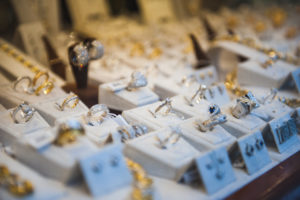Pawnbroking, one of humanity’s oldest financial practices, has a history of over 3,000 years. The need for fast cash has been a longstanding common problem, and the practice of “pawning” personal items of value in exchange for a cash loan has been the reciprocal solution throughout time.
The history of pawn shops dates back to ancient China and later spread to Greece and Rome. Pawnbrokers offered loans to merchants, enabling them to fund their ventures and stimulate economic growth.
During the Middle Ages, the Catholic Church imposed restrictions on charging interest. The growth of pawn shops slowed during this time until the rules were relaxed due to the continued need for financing businesses and temporary aid for individuals.
The Renaissance saw the rise of prominent banking families, who were instrumental in developing modern pawnbroking. These included the Medici family of Italy, whose family crest is often said to have influenced the traditional symbol of pawnshops—three golden balls suspended from a bar.
In 18th-century England, pawnbroking became regulated. Laws were enacted to protect pawnbrokers and their clients. The Pawnbrokers Act of 1872 established guidelines for transparency and fairness in transactions, which are still in effect today.
The history of pawn shops in the United States began with the arrival of European settlers. Pawnbroking quickly became a vital source of cash for individuals without access to traditional banking services.
Throughout the 19th and 20th centuries, pawn shops were a crucial resource of financial relief during economic downturns.
The history of pawnbroking continues to evolve, with modern pawn shops like American Jewelry and Loan providing various services. While the traditional collateral pawn continues, we also offer customers the opportunity to buy and sell pre-loved goods, a layaway program, and jewelry repair services.
Understanding pawn shops’ history offers valuable insight into their enduring role in society as accessible financial institutions.




